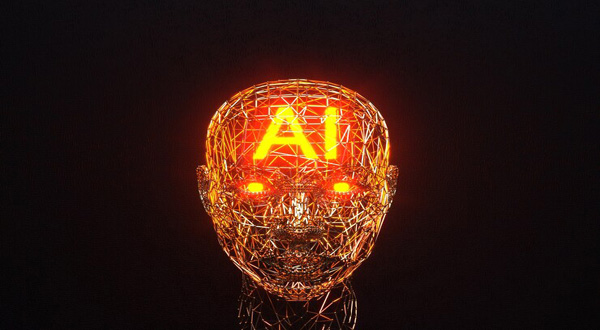Understanding Artificial Intelligence: Exploring Its Wonders
- Update Time : Thursday, February 29, 2024
- 27 Time View

Understanding Artificial Intelligence: Exploring Its Wonders: In today’s fast-paced world, the term “artificial intelligence” (AI) is frequently tossed around. But what exactly is it? How does it impact our daily lives? Join us on a journey to demystify AI, exploring its definition, examples, and practical applications.
Table of Contents
| Sr | Headings |
| — | —————————- |
| 1 | What is Artificial Intelligence? |
| 2 | Types of Artificial Intelligence |
| 3 | Examples of AI in Everyday Life |
| 4 | AI in Healthcare |
| 5 | AI in Finance |
| 6 | AI in Transportation |
| 7 | AI in Entertainment |
| 8 | AI in Customer Service |
| 9 | AI in Education |
| 10 | AI in Agriculture |
| 11 | AI in Manufacturing |
| 12 | AI in Environmental Conservation|
| 13 | The Future of Artificial Intelligence |
| 14 | FAQs: Exploring Common Questions |
| 15 | Conclusion |
- What is Artificial Intelligence?
Artificial intelligence (AI) is the simulation of human intelligence processes by machines, especially computer systems. These processes include learning, reasoning, and self-correction. In simpler terms, AI enables machines to mimic human behavior, making decisions and completing tasks with minimal human intervention.
- Types of Artificial Intelligence
Strong AI or General AI: This type of AI possesses human-like cognitive abilities. It can understand, learn, and apply knowledge across various domains, essentially mirroring human intelligence.
Weak AI or Narrow AI: In contrast, weak AI is designed for a specific task or narrow set of tasks. It excels at performing predefined functions, such as virtual assistants like Siri or Alexa.
- Examples of AI in Everyday Life
Smart Assistants: Devices like Amazon Echo and Google Home utilize AI to respond to voice commands, manage calendars, and provide personalized recommendations.
Recommendation Systems: Online platforms such as Netflix and Spotify use AI algorithms to analyze user preferences and recommend relevant content.
Autonomous Vehicles: Companies like Tesla are pioneering self-driving cars, powered by AI algorithms that interpret sensory data to navigate roads safely.
- AI in Healthcare
AI is revolutionizing healthcare by enabling early disease detection, personalized treatment plans, and streamlining administrative tasks through electronic health records.
Read More: Unraveling the Best Book on Artificial Intelligence: A Guide for the Curious Mind
- AI in Finance
In finance, AI algorithms analyze vast amounts of data to detect fraudulent activities, optimize trading strategies, and offer personalized financial advice to clients.
- AI in Transportation
From traffic management systems to autonomous vehicles, AI is reshaping transportation, promising safer roads, reduced congestion, and improved efficiency.
- AI in Entertainment
AI enhances entertainment experiences through personalized content recommendations, immersive virtual reality (VR) experiences, and computer-generated special effects in movies and video games.
- AI in Customer Service
Virtual chatbots powered by AI provide 24/7 customer support, answering queries, resolving issues, and improving overall customer satisfaction.
- AI in Education
AI-driven adaptive learning platforms personalize educational experiences, catering to individual learning styles and pacing, thereby enhancing student engagement and performance.
Read More: Understanding Artificial Intelligence: A Comprehensive Guide
- AI in Agriculture
In agriculture, AI-powered drones monitor crop health, predict yield, and optimize resource allocation, leading to increased efficiency and sustainable practices.
- AI in Manufacturing
AI-driven robotics streamline manufacturing processes, increasing productivity, quality control, and worker safety in factories worldwide.
- AI in Environmental Conservation
AI technologies aid in environmental conservation efforts by analyzing satellite imagery for deforestation detection, predicting natural disasters, and monitoring wildlife populations.
- The Future of Artificial Intelligence
As AI continues to evolve, we can anticipate further integration into various aspects of our lives, from smart cities and wearable technology to advancements in healthcare and space exploration.
- FAQs: Exploring Common Questions
Q1: Is Artificial Intelligence the same as Machine Learning?
A1: While closely related, AI is a broader concept encompassing any technique that enables computers to mimic human intelligence, whereas Machine Learning is a subset of AI focused on training machines to learn from data.
Q2: Should we be concerned about AI taking over human jobs?
A2: While AI may automate certain tasks, it also creates new job opportunities and enhances human capabilities. The key lies in adapting to these changes and embracing the potential of AI-driven innovation.
Q3: How secure is AI in terms of data privacy?
A3: Data privacy and security are crucial considerations in AI development. Stricter regulations and ethical guidelines aim to ensure responsible AI usage, safeguarding user data and privacy.
Q4: Can AI ever achieve human-like consciousness?
A4: The quest for artificial consciousness is a topic of philosophical debate. While AI can simulate human-like behavior and cognition, achieving true consciousness remains a complex and speculative endeavor.
Q5: What are the ethical implications of AI technology?
A5: Ethical considerations surrounding AI include issues of bias in algorithms, accountability for autonomous systems, and the impact on employment and societal norms. Addressing these concerns requires collaboration between policymakers, technologists, and ethicists.
- Conclusion
Artificial intelligence is not just a futuristic concept but a present reality that permeates various facets of our lives. From personalized recommendations to autonomous vehicles, AI continues to transform industries and redefine human-machine interactions. As we embrace the possibilities of AI, it’s crucial to navigate its ethical implications and harness its potential for the betterment of society. So, let’s embark on this journey together, exploring the boundless horizons of artificial intelligence.
In conclusion, artificial intelligence is a fascinating field with limitless potential. By understanding its intricacies and real-world applications, we can appreciate its impact on our daily lives. As we move forward, let’s embrace the wonders of AI while remaining mindful of its ethical considerations and societal implications. After all, in the grand tapestry of human progress, artificial intelligence is but one thread, weaving a brighter future for generations to come.












